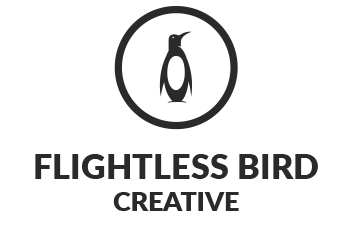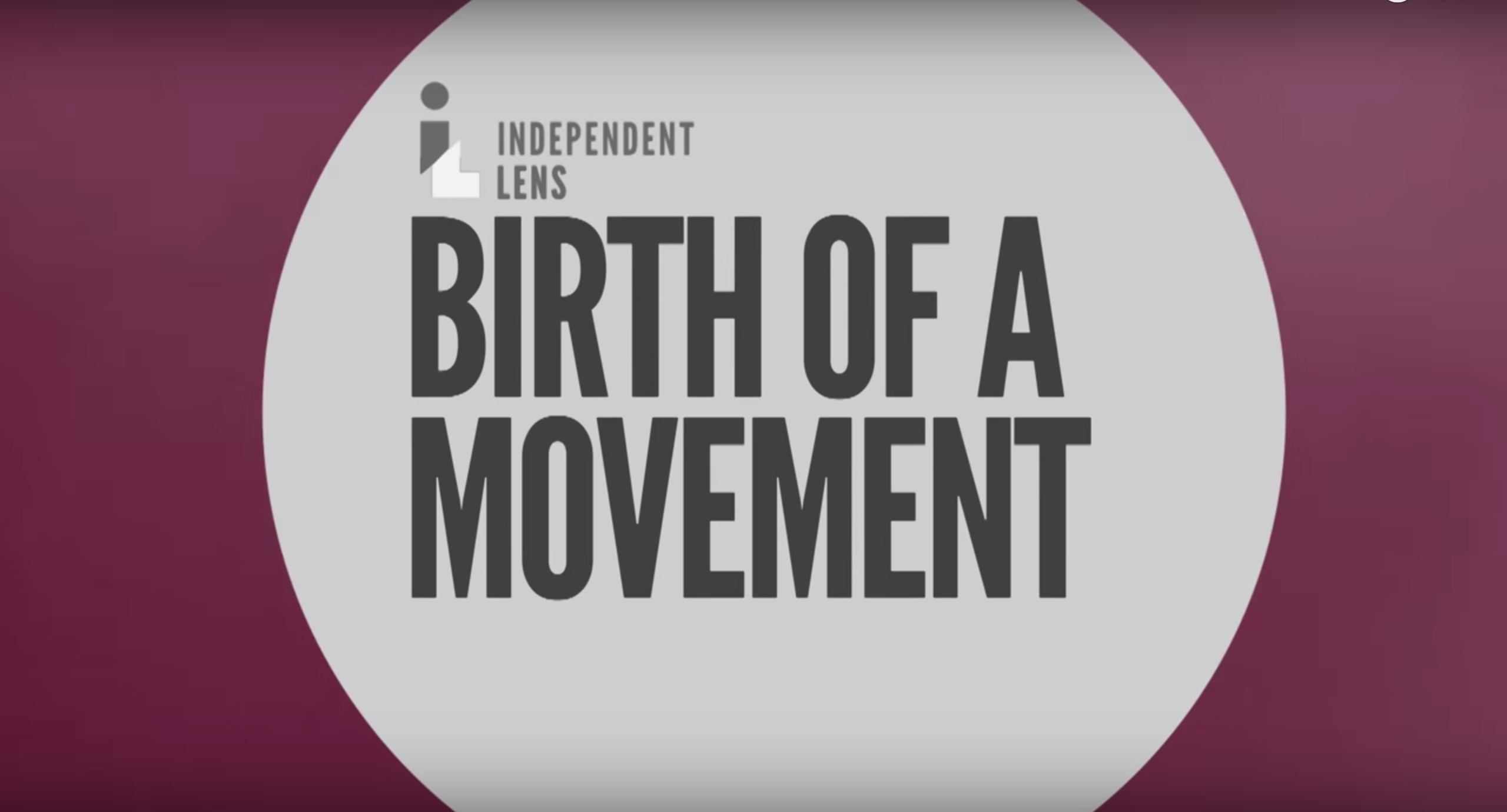This is for every writer sitting on their magnum opus, thinking there’s no way it would ever hit the big screen. It’s no simple process, but writer/director Kwyn Bader’s success story lets us in on a few tips that can help independent filmmakers get off the ground.
Kwyn is the writer and director of the independent feature Loving Jezebel (winner of a South by Southwest Audience Award), and writer of the Emmy-nominated documentary Birth of a Movement. He is currently the Director of Creative Strategy at Nickelodeon in New York, where he agreed to meet and talk about the filmmaking process, from the dream of making your own movie, to watching it on tv. For first-time filmmakers, Kwyn has a wealth of advice on how to go about the process.
Stephen: Let’s start with talking about the process with Loving Jezebel…How did you go about the process of taking a script you have and making it into a movie, or even just going from “I have an idea for a movie” to then seeing it up on the screen?
Kwyn: Basically I had this kernel of an idea that came mostly because it was like an image that I kept seeing…This guy was sitting on his fire escape waiting for the husband of some girl that liked him to kill him. (laughs)
So I started writing scenes on napkins. I wasn’t like, “Oh, I’m going to write this script.” I just started having these images and pieces of dialogue and I was stuffing napkins into my pockets. And then there was one moment, and I sat down and just started putting it together. I basically took a month off of what I couldn’t afford to. I was just like, “I’m going to sit in my apartment and write this.” And I did. And then a friend and I were on a camping trip with other people, and he was like, “Bring that script I know you were working on.” We read it together and he was like, “You’ve got to go try and make this.”
There was one producer my friend introduced me to; I took that meeting. That guy was like, “Well I’m not gonna do it right now but if you get some cast attached, everybody will want to make it.”
And the thing I had going for me back then is I used to hang out a lot in the New York scene, and I started working the film parties and meeting people. So eventually, I had a really good actress [Nicole Ari Parker] who wanted to do it, and then off of that I started getting agent attention, and that was key for me.
Stephen: So once you have the script down you yourself have to go out and network with cast? And then once you have the cast then you can start talking about how’re we going to budget this, how’re we going to make this happen?
Kwyn: It’s really what can you get to first? (laughs) Right? If you know somebody who’s really good friends with a great agent, that could get you going. If it’s a really good producer that can help you. The producer might be friends with the one star or, it doesn’t have to be a star, name enough to get you the financing you need to do the film. I think it’s always best to go to what you can go to first.
Once I had an agent I met with like 30 different potential producers. And out of that there was one who we thought was perfect and who felt likewise. And that’s when it really got going because we were able to go to companies with a full package. It was like, we’ve got a first time director but who’s a really good writer. Which I’ve found if you can write a really good script the willingness of people to back you as a first time director is strong.
Once we had that package then it was like we had a property. Then you have something a company can actually put some money into and know it will fulfill something that could go on either in a theater or on a network.
Stephen: It’s really just on you. You just go put a team together.
If people feel like “God dammit I want to be a part of this because if I don’t do it somebody else is going to do it,” then you’re probably in a good space.
Kwyn: I would definitely say your biggest asset as a young or first time filmmaker is realizing it’s you and what’re you coming in with. Not only in terms of what you’ve created, but how are you coming in? Are you willing to get people excited? Are you willing to come in and really put it out there, and create that confidence in other people that even if they don’t do it, it’s going to get made because they feel the force of your energy or just how committed you are to doing something well? If people feel like “God dammit I want to be a part of this because if I don’t do it somebody else is going to do it,” then you’re probably in a good space.
Stephen: So production happens and then…Did you know going in that they were going to send this to some festivals, or did you have a plan for that?
Kwyn: We definitely knew we were going to submit to festivals and wanted to take it there. We didn’t know really exactly when we’d finish.
We went to the Chicago Film Festival, which was a lot of fun. The Urban World festival here in New York City. But my favorite was South by Southwest. We took it down there and audiences loved it. The University of Texas student population who came loved it, and it won the Audience Award for Best Feature Film.
Then when it came out theatrically, it was very mishandled by a company that was about to declare bankruptcy, and I did not know that that was going to happen. So it didn’t last long in the theaters at all.
But the great thing was it was going to be on Starz and we knew that, so then it played before millions of people and it was a regular Starz running feature and they still show it sometimes.
Stephen: Do you think it’s just a different way that it translates in front of a film festival audience versus a theatrical release?
Kwyn: Yeah, every audience is different, but I also think it’s how you connect to those different audiences. I feel like now there’s a lot more nuance in how films are communicated out. At the time, my film was the first film really that had a multiracial cast that were getting romantically involved, and that’s not what the film was about. I took it for granted, the kind of thing you see every place now. But when that movie was coming out in 2000, it wasn’t really anywhere. So the New York Times’, Elvis Mitchell, he had called it out for that. Reluctant to say his name, but Bill Cosby called me up because he had heard about it, he watched it and he loved it because it had that element. He was like, “This is what Sidney Poitier and I were trying to just do, show you can just be anything.”
But instead of marketing that way, the company cut a trailer that I didn’t think showed really what the film was about. It was heartbreaking to walk into a theater without a lot of people.
Stephen: Is there any biggest challenge you faced or thing you wish you had gone about differently?
Kwyn: I think everybody’s going to have their own battle depending on what they’re trying to accomplish. Mine specifically had a lot to do with race because I don’t accept lines that get drawn by other people. I have a black parent and a white parent, but I was brought up with the idea I didn’t have to make my decisions based on these archaic values.
Like there’s always gonna be something. And that’s part of the rite of passage. Like Mad Men, Matthew Weiner had written it up before doing The Sopranos and nobody wanted it. David Chase was like, this is great writing. And he hired him. And then even afterwards, that show didn’t end up on HBO because HBO turned it down. So we all are gonna have these struggles. And you can’t stop because of that.
Stephen: To shift a bit now to Birth of a Movement, you’ve worked on documentary and feature film projects. Is there a big difference in working on either one, documentary versus feature film?
Kwyn: For me, there’s a part that’s the exact same: it should be storytelling that’s about truth, right? Even if something’s fiction. A documentary, just because it’s real, it doesn’t mean you’re going to immediately find the truth of it.
If you’re doing one on just a single famous person, well, that single famous person has lived thousands and thousands of hours of life, done all sorts of things. And you can choose any part of it, right? So it’s not truly nonfiction, as soon as somebody puts their eyes on it and says, “I’m going to tell this story about them.”
I also think the money involved, there just tends to be a lot less in documentaries. They are often government-funded on some level. So with that, I found that there is more integrity, just overall. Don’t get me wrong, there’re feature filmmakers and producers with tons of integrity, but there’s this desire [with documentaries] to just to get it right, to process things in a responsible way. Audience is not the only thing that matters. I don’t think you could make feature films and not be worried about the audience.
Stephen: How did it come about that you were able to work on Birth of a Movement? How did it get started?
Kwyn: Well, the first things I had worked on were documentaries. Then I had left it for a long time to do Loving Jezebel and write studio screenplays and go through my story in Los Angeles. But when I returned to New York, just kind of organically, it was documentary film people who just started calling me, like, “Hey, what are you doing? Hey, this would be interesting.”
And then one of the actresses from Loving Jezebel said, “There’s a guy I want you to meet, he’s the brother of my boyfriend.” And the brother was doing this really interesting film on a guy who went around to nursing homes bringing music to people with Alzheimer’s. And when they would hear their playlists, their memory would be restored. And it had a clip that had gone viral on Youtube. And anyway, he was trying to put together a full length documentary feature and we connected and hit it off. And he said, “Hey, would you come up to my cabin in the Catskills and just work with me for several days?” (laughs). And I was able to help that film quite a bit and it ended up doing really well. It won the Sundance Audience Award for Best Documentary in 2014.
So that had brought me back into the world. And then I got a call from the production company Northern Lights, who a friend had recommended me to about Birth of a Movement. And they were talking about this guy William Monroe Trotter, who I quickly discovered was a black newspaper owner in Boston. And in 1915 he had led a protest against The Birth of a Nation, which I knew of as this infamous movie that was America’s first blockbuster. A very racist picture.
I went to Boston and I met with Bestor Cram, who was the producer-director. Dick Lair, who is an incredible writer, he’s there. And we got in this room with the editor and a writer and just started talking. And before I left there, we had decided, “Kwyn you’re going to write this. You’re going to start next week.” I was like, “What’s the research time?” “Well, we’re going to be sending you the research but we need you to start at least laying it out because we’re going to need to cut by like six weeks down the road, or eight weeks.” So, it was a crazy schedule. I’m going to have to be figuring it out while stuff is still being sent to me. Forget about that most of the interviews haven’t been done, right?
And I quickly was like, what would I want to see if I were coming to watch this documentary? Well, we have these two big personalities. There’s D.W. Griffith, the first great filmmaker in American history who made the most racist film in American history, and this guy Trotter, who was one of the early civil rights leaders who was not afraid to exercise his jaws to call out injustice.
And I know there’s going to be showdown. So, it’s like a western. So I was like, how do I make that compelling when it’s still going to be story told with a bunch of scholars, right? So, I got it into a place where you could see what the movie could be. But I was writing in like, “Spike Lee says, ‘Dah dah dah dah dah,’” and we hadn’t interviewed Spike Lee yet. So that’s how the basics came together.
After about half a year, I then came back and saw their rough cut. And then for a few weeks it became really digging in the hard work of “That’s not working. This is. You need this.” And we had to crank every day because I knew we had limited time.
But then, on weekends while working at Nickelodeon as the director of creative strategy, I was rewriting narration for Danny Glover. But, that’s fine. Once I know who it is and I can hear their voice and I was able just to simplify a lot of stuff. So, I don’t need to try to make it sound poetic. It’s Danny Glover.
Stephen: What was the script writing experience like for the documentary? How different did it feel than writing your feature script when you know you have to be based in historical reality?
Kwyn: I feel like with feature scripts, you’re responsible for everything, like every voice. Every shot, every aspect of it and that’s kind of it’s own responsibility set. I feel like with documentary it’s different because you’re going to have less control. Yeah, you may have seen some of the footage, but a lot of it is like, you’re indicating but you’re not going to get to control that. I feel like it’s more of collage work in a certain way with the stuff you have.
You create a story that is really blueprint work until they start making it, because there’s so much you don’t know. You don’t know the person’s actually going to say the thing you think they’re going to say, even if you’ve pre-interviewed them. The best thing might be the thing they say, “Oh, but you know what? I haven’t thought about it all until right now”.
Stephen: And, I mean, it was nominated for an Emmy recently.
Kwyn: Well, we didn’t know where it was going to place. You’re not guaranteed distribution even if you are financed in part by the National Endowment for the Humanities. So, once it was finished, thankfully, Independent Lens, which has a series of esteemed films that go on PBS, saw and liked it and picked it up. And it came out, appropriately during Black History Month, and in a way we couldn’t have planned, had a huge additional resonance based on the fact that Donald Trump had been elected.
After the first year’s viewing, we got nominated for an NAACP image award for Best Documentary. So, I got to go out to the west coast for that, what I call the Blackademy Awards. And then this year, we had this wonderful surprise to be nominated for an Emmy Award for Best Historical Documentary. And it’s on Netflix. It’s on Prime. I mean I’ve been surprised. Sometimes I’ve mentioned it, and somebody’s like, “Oh, yeah, I watched that. I didn’t know you did that and worked on that, Kwyn”.
Interviewed by Stephen Kipp | Head Writer


